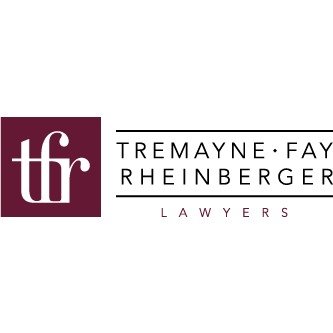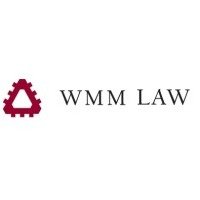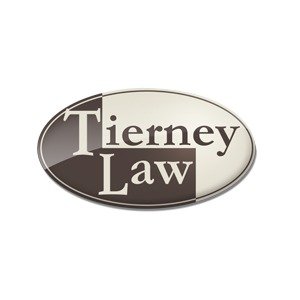Best Inheritance Law Lawyers in Hobart
Share your needs with us, get contacted by law firms.
Free. Takes 2 min.
List of the best lawyers in Hobart, Australia
About Inheritance Law in Hobart, Australia
Inheritance law in Hobart is part of Tasmania's legal framework governing wills, intestacy, probate and estate administration. It determines how a person’s assets are distributed after death, who may act as an executor or administrator, and how disputes are resolved. Tasmania uses state-specific acts and court processes to handle probate and estate matters. For complex estates, legal advice helps navigate procedures in the Supreme Court of Tasmania's Probate Registry.
In Hobart, practical challenges often involve locating a will, validating testamentary capacity, and addressing potential claims from dependants. Understanding the role of executors, beneficiaries and potential family provision claims is essential. Always verify current rules with official sources to ensure compliance with the latest requirements.
For official processes and current texts, consult the Supreme Court of Tasmania and Tasmanian legislation resources. See the links in the References section for authoritative guidance.
Why You May Need a Lawyer
-
What happens when there is no will in Hobart, Tasmania?
A deceased person without a valid will triggers intestacy rules. A family member or potential claimant may seek a portion of the estate through the Supreme Court of Tasmania. A solicitor can identify eligible beneficiaries and manage the Probate Registry process.
-
How can I contest a will in Hobart due to capacity or influence?
When terms appear unfair or there is doubt about testamentary capacity or undue influence, a lawyer helps gather evidence and prepare a challenge under Tasmanian law. Proceedings may involve expert medical and forensic testimony.
-
Do I need a lawyer to apply for probate or administering an estate?
Probate or letters of administration require careful documentation and filings. A solicitor ensures forms are correct, assets are identified, and duties are explained to executors or administrators.
-
Can a family member claim for provision under the Family Provisions framework?
If you are a dependent or close relative, you may have rights to reasonable provision from the estate. A legal adviser helps assess eligibility and builds a claim strategy compliant with Tasmanian procedures.
-
What if assets are located in another state or overseas?
Multi-jurisdictional estates may require probate or administration in more than one jurisdiction. A lawyer coordinates cross-border steps and ensures assets are managed consistently with local laws.
-
Should I seek a lawyer for estate planning to avoid disputes?
Yes. A solicitor can draft clear wills, appoint executors, and set up provisions to minimize disputes and tax implications for beneficiaries.
Local Laws Overview
Tasmania governs wills, probate and succession through state legislation and court processes. Key acts guide how wills are made, how estates are administered, and how intestacy and claims are handled in Hobart and across the state.
- Wills Act (Tasmania) - Sets formal requirements for making a valid will, including testamentary capacity, witnesses, and formality rules. Official texts are available on Tasmanian Legislation Online.
- Administration and Probate Act (Tasmania) - Covers probate applications, the administration of estates, and executor or administrator duties.
- Succession Act (Tasmania) - Addresses intestacy rules and related succession issues, including how estates are distributed when there is no valid will.
These acts are maintained by the Tasmanian authorities and are regularly updated. For current texts and amendments, consult Tasmanian Legislation Online and official government portals.
Recent changes and precise provisions are published on official sites. For current texts, see the Tasmanian Legislation Online portal and the Supreme Court of Tasmania guidance.
Frequently Asked Questions
What is intestacy and how does it work in Tasmania?
Intestacy occurs when there is no valid will. The estate is distributed according to Tasmanian rules, prioritizing spouses, children and other relatives as defined by the Succession Act.
How do I apply for probate in Hobart, Tasmania?
Begin by gathering death certificates, the will (if any), and asset lists. A solicitor prepares the probate application for submission to the Supreme Court of Tasmania.
What costs are involved in obtaining probate in Tasmania?
Costs include court filing fees, solicitor fees for preparing documents, and potential executor remuneration. Fees vary by estate complexity and location.
How long does probate typically take in Hobart, Tasmania?
Simple estates may take 4-8 weeks after filing, while complex estates can take several months. Delays occur if documents are incomplete or assets are overseas.
Do I need a lawyer to create a will in Tasmania?
Although not mandatory, a solicitor helps ensure validity, proper execution, and clear testamentary instructions to reduce disputes.
What is the difference between a will and a trust in Tasmania?
A will directs asset distribution after death, while a trust arrangement holds assets during a person’s lifetime or for future handling. Tasmania regulates both through different frameworks.
Can I contest a will in Tasmania if terms seem unfair?
Yes, you may contest on grounds such as lack of capacity or undue influence. Courts assess evidence under the Succession Act and related provisions.
Should I appoint an executor or administrator in my will?
Appointing a trusted, capable person reduces disputes. The executor handles probate and distribution duties with legal obligations.
Do I need to provide original documents for probate?
Original documents are typically required or verified copies. Your solicitor confirms what is needed for your specific estate.
How are digital assets treated in Tasmanian estates?
Digital assets are increasingly considered part of an estate. Your will should address access, passwords, and asset transfer where legally permitted.
What is a grant of probate versus letters of administration?
Probate confirms a will is valid and directs asset administration. Letters of administration apply when there is no will or the executor cannot be named.
Is there a time limit for making a family provision claim after death?
Yes, time limits apply for filing a claim in Tasmania. Consult a lawyer promptly to protect your eligibility and rights.
Additional Resources
These official resources can help you understand and access inheritance law services in Hobart and Tasmania:
- Tasmanian Courts - Probate and Estates information - Official portal for probate guidance and court processes in Tasmania.
- Tasmanian Legislation Online - Access current Wills Act, Administration and Probate Act, and Succession Act texts and amendments.
- Legal Aid Tasmania - Free or low-cost legal assistance for eligible individuals dealing with estate matters.
Statistics and official guidance are published by government sources to ensure accuracy and currency. For the most current rules, consult the Tasmanian Legislation Online portal and the Tasmanian Courts websites.
Next Steps
- Gather key documents within 1-2 weeks: death certificate, any will, asset listings, and a list of potential beneficiaries.
- Determine if probate or administration is required within 1-3 weeks by consulting a Hobart solicitor who handles estate matters.
- Shortlist 2-3 lawyers with Inheritance Law experience in Hobart within 1-2 weeks; review fees and turnaround times.
- Book initial consultations within 1-4 weeks; prepare questions about costs, timelines, and expected steps.
- Engage a solicitor with a clear engagement letter; establish a cost estimate and retainer within 1-2 weeks after the consult.
- Submit probate or administration applications to the Supreme Court of Tasmania within 2-6 weeks after engagement.
- Monitor progress with your solicitor and complete estate distributions or appeals within 3-12 months, depending on complexity.
Lawzana helps you find the best lawyers and law firms in Hobart through a curated and pre-screened list of qualified legal professionals. Our platform offers rankings and detailed profiles of attorneys and law firms, allowing you to compare based on practice areas, including Inheritance Law, experience, and client feedback.
Each profile includes a description of the firm's areas of practice, client reviews, team members and partners, year of establishment, spoken languages, office locations, contact information, social media presence, and any published articles or resources. Most firms on our platform speak English and are experienced in both local and international legal matters.
Get a quote from top-rated law firms in Hobart, Australia — quickly, securely, and without unnecessary hassle.
Disclaimer:
The information provided on this page is for general informational purposes only and does not constitute legal advice. While we strive to ensure the accuracy and relevance of the content, legal information may change over time, and interpretations of the law can vary. You should always consult with a qualified legal professional for advice specific to your situation.
We disclaim all liability for actions taken or not taken based on the content of this page. If you believe any information is incorrect or outdated, please contact us, and we will review and update it where appropriate.
















